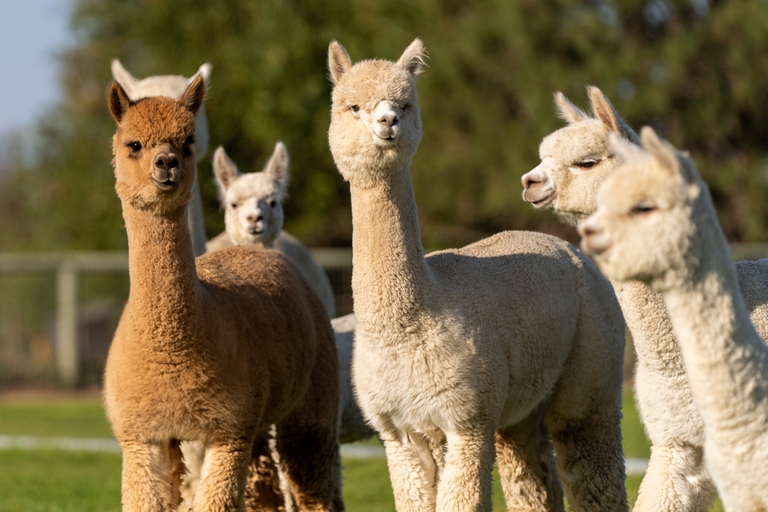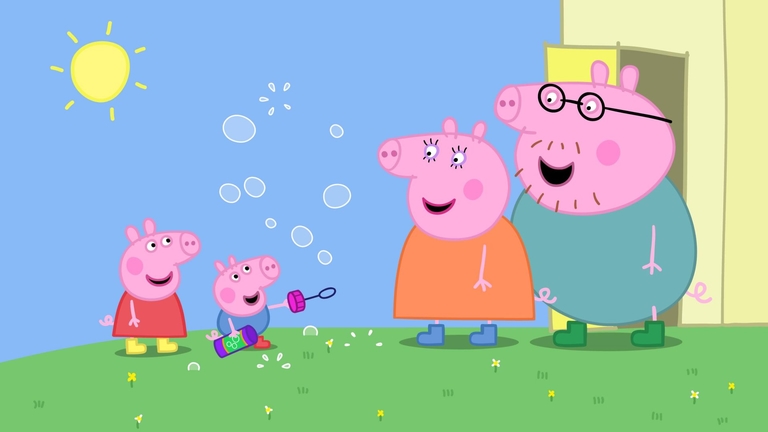Why are "Pirates of the Caribbean," "Peppa Pig," and bananas banned in China? Discover the surprising reasons behind these restrictions.
China is a country where a conservative approach prevails in many aspects of life. Here, one often encounters various types of restrictions. However, some prohibitions for locals are truly surprising in their peculiarity.
Jokes and Puns about Alpacas
 5
5The harmless, cute animal is hardly aware of the indecent jokes associated with it. The Chinese, with their numerous dialects, can easily turn an ordinary word into an expression with a completely different, often scandalous, meaning. A slight change in intonation or pronunciation can make all the difference. So, if someone complains about the complexity of the Russian language, it might be worth taking a look at Chinese.
This fate also befell alpacas. In 2009, when Chinese authorities were actively combating profanity on the internet, users began to circumvent the bans by using puns. One such trick was an article on the Chinese Wikipedia Baidu Baike, which invented a host of absurd terms for fictional animals. Among them was the word "alpaca," or "caonima." Literally, it translates to "dirty grass horse," but its sound resembled a common curse.
The public's reaction was explosive: alpacas quickly became an internet sensation. Memes, cartoons, music videos, toys, figurines, and souvenirs featuring them emerged. But the story didn't end there: jokes about alpacas soon extended to the Communist Party of China. Naturally, the authorities could not ignore this and added such puns to the list of content undermining social stability. Thus, jokes about alpacas found themselves banned.
Peppa Pig
 6
6The beloved cartoon for children around the world, including China, gained popularity not only among the younger audience.
In the Middle Kingdom, there exists a peculiar hooligan subculture known as "shèhùirén," which translates to "people of society." They are considered somewhat akin to local gangsters: members of this group are characterized as uneducated, unemployed young men. Unexpectedly, the symbol of this subculture became... Peppa Pig. Her image was used in memes, graffiti, and even tattoos.
Unable to cope with the spread of this trend, the authorities made a radical decision: the cartoon was blocked, and any hashtags and mentions of Peppa Pig were banned.
Films about Mysticism and Time Travel
 7
7Film lovers in China will have to do without many foreign hits. For instance, movies like "Pirates of the Caribbean: Dead Man's Chest" and "Crimson Peak" are banned in the country. The reason is simple: fantasy films, those about reincarnation, the supernatural, and even ordinary horror films do not align with the views of the Communist Party.
Members of the CPC believe that such films could undermine the people's faith in the party's strength, although the specific rationale behind this perspective remains unclear.
Films about time travel are also prohibited. Back in 2011, when this genre began to gain popularity, the authorities decided that such films distort historical truth, undermine collective consciousness, and offend Chinese traditions.
However, despite these restrictions, China continues to produce fantastic dramas where characters travel through time and even between worlds.
Adult Films
As mentioned earlier, China remains a rather conservative country. Therefore, explicit scenes in films are strictly prohibited. But these restrictions do not only apply to cinema. They extend to books, magazines, photographs, and video content.
Websites are regularly monitored, and creators—from artists to directors and sculptors—are subjected to stringent control. Even the slightest hint of nudity can be deemed a violation of the law. Moreover, the law, in effect since 1949, is worded very vaguely. This gives authorities the power to fine anyone they believe violates social norms and "the mental health of youth."
Ban on Eating Bananas
 8
8This ban even affects harmless fruits. Girls are prohibited from eating bananas on camera—both on television and streaming platforms. It is believed that such actions could negatively impact the moral state of society.
Additionally, short tops and skirts have also come under restrictions. Authorities decided that these were "too revealing."
Land Ownership
 9
9Chinese citizens are prohibited from owning land—it solely belongs to the state. To build a house, a citizen must lease a plot from the authorities. Moreover, the lease can only be arranged for 70 years.
But even after leasing, not everything is straightforward. According to the law, construction must be completed within two years. If this does not happen, the right to build is lost. For this reason, one can see numerous unfinished buildings and even entire ghost towns in the country.
Ban on Consuming Pets
 0
0Jokes about cat and dog meat have long had a basis in reality. Until 2020, millions of pets were consumed in China annually. However, an official ban was later imposed on this practice. Unfortunately, not all citizens adhere to it.
Jasmine
 1
1In 2011, Chinese authorities unexpectedly imposed a ban on the word "jasmine." The flowers themselves were also banned: they could not be sold or purchased. The reason for this decision was a fear of revolutionary sentiments, stemming from events in Tunisia, where the "Jasmine Revolution" began in the same year.
This explanation may seem strange, but in China, prohibitions often have quite unexpected logic.